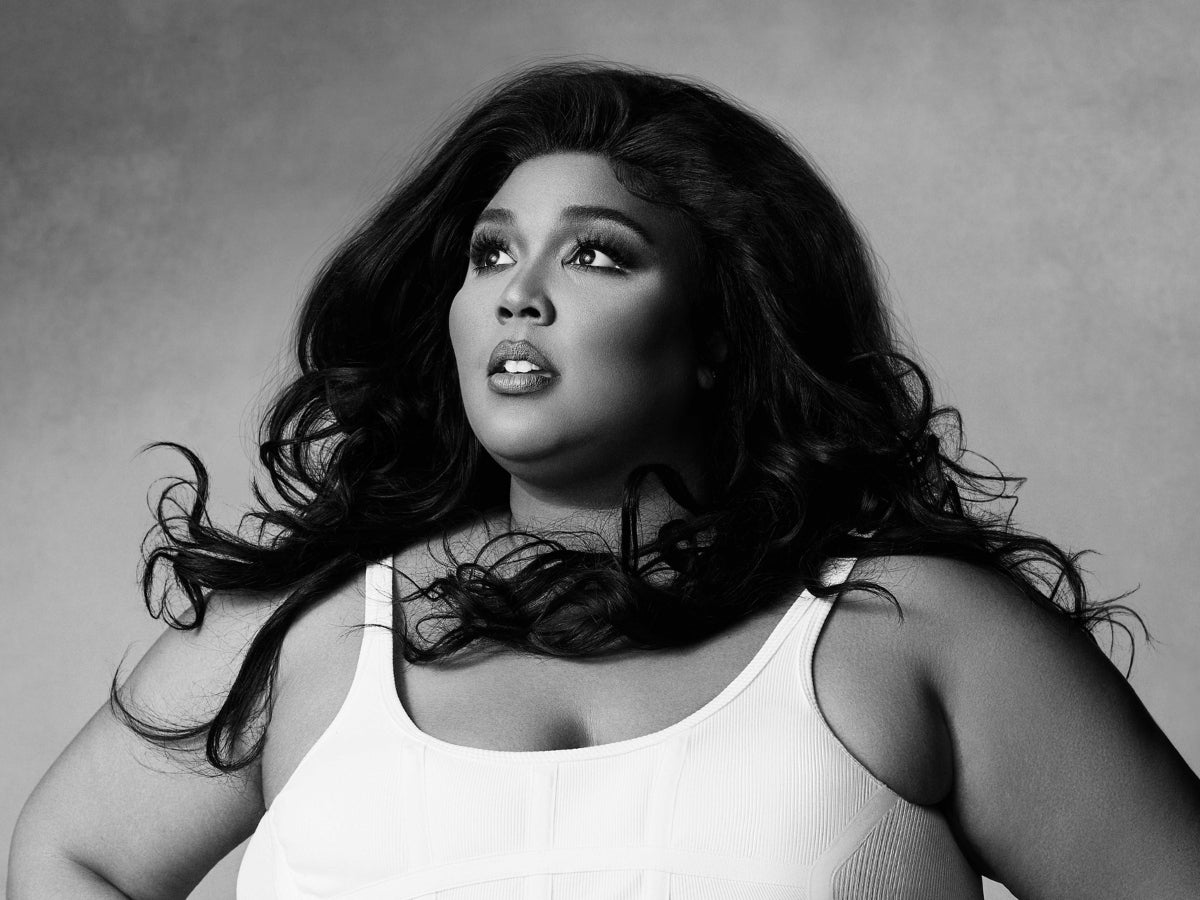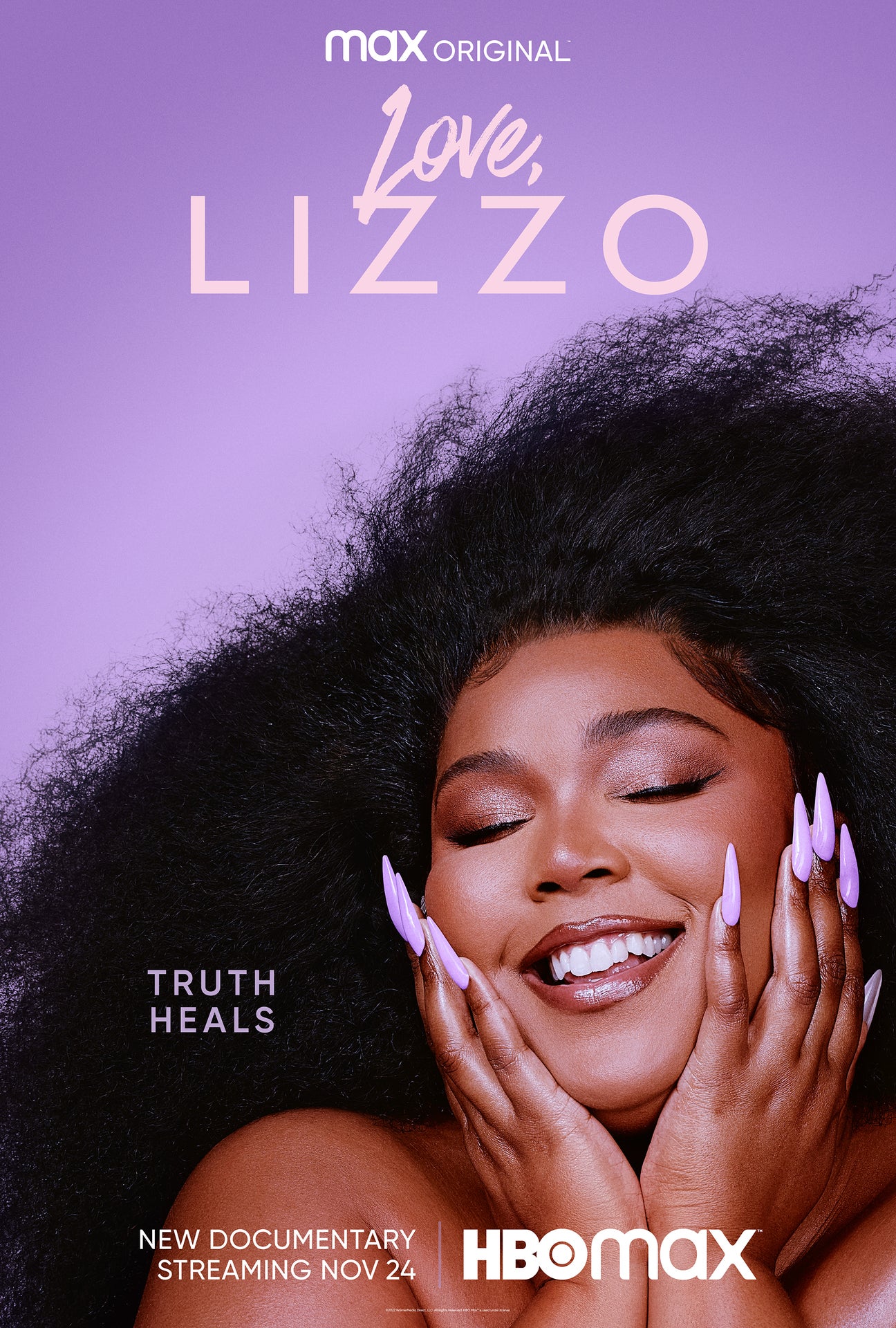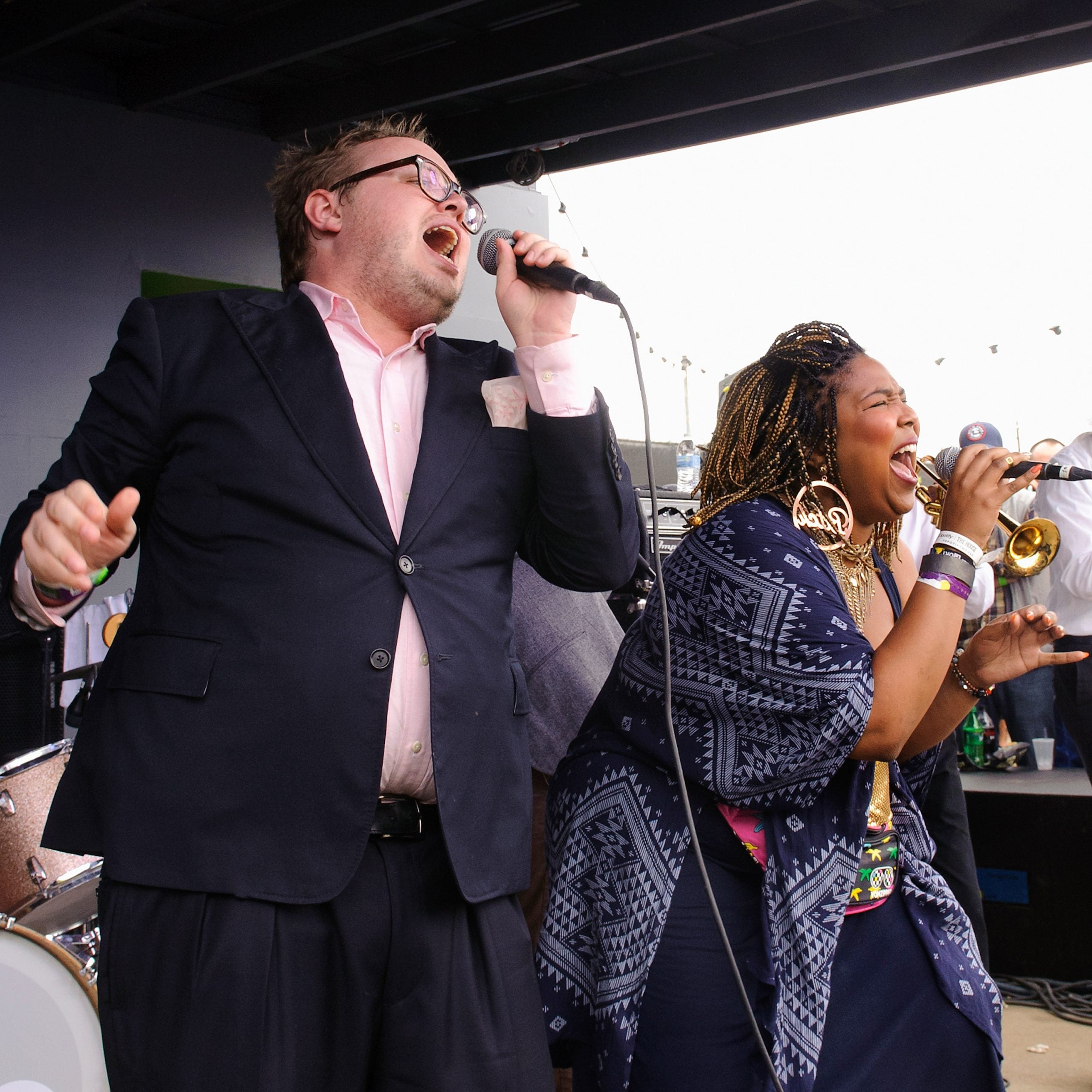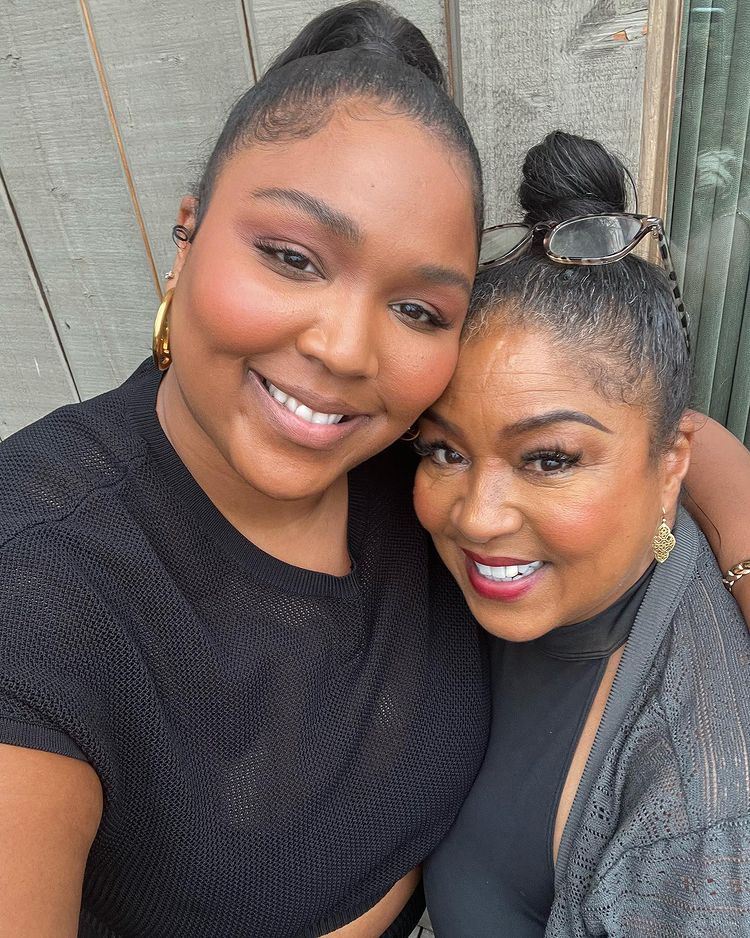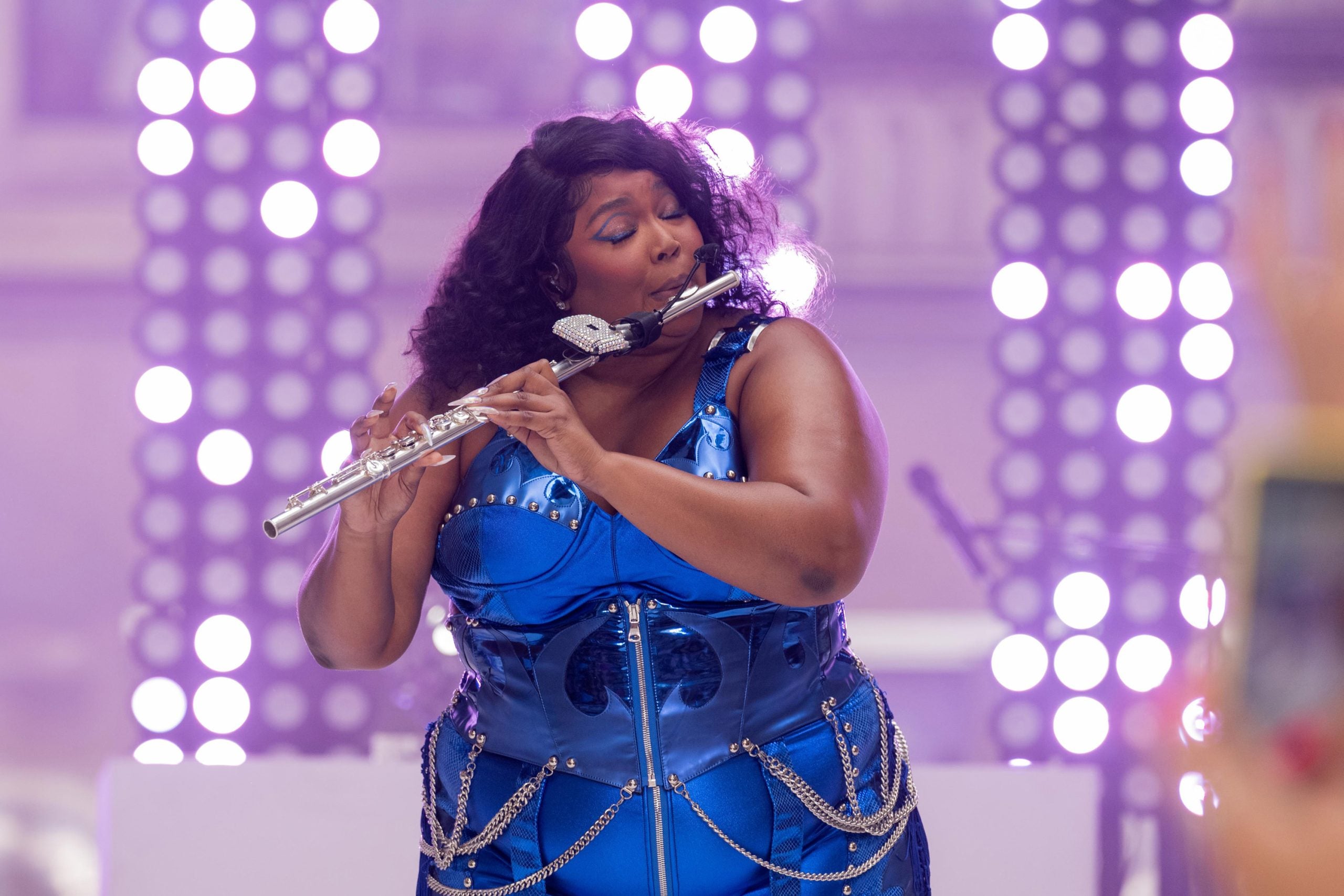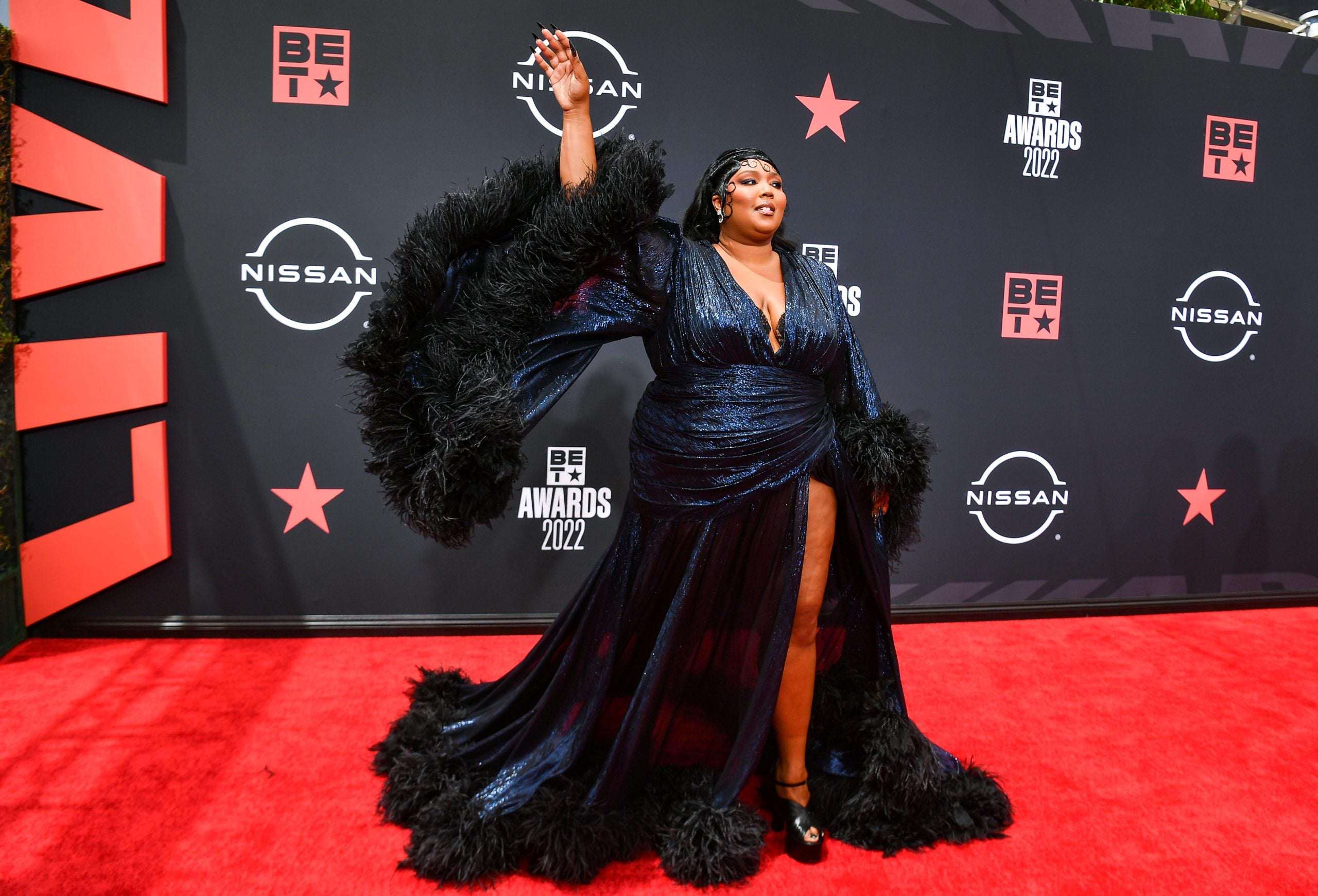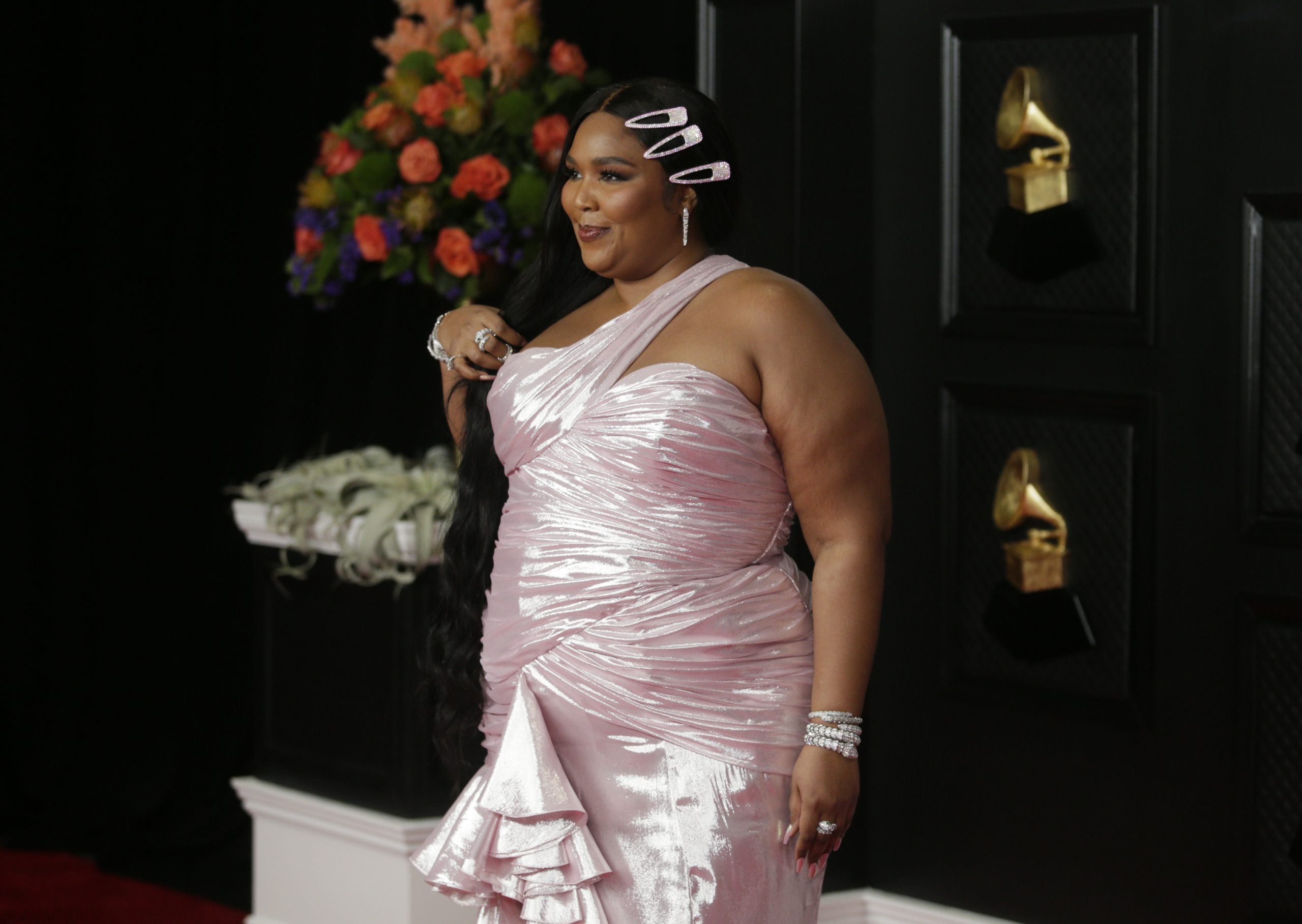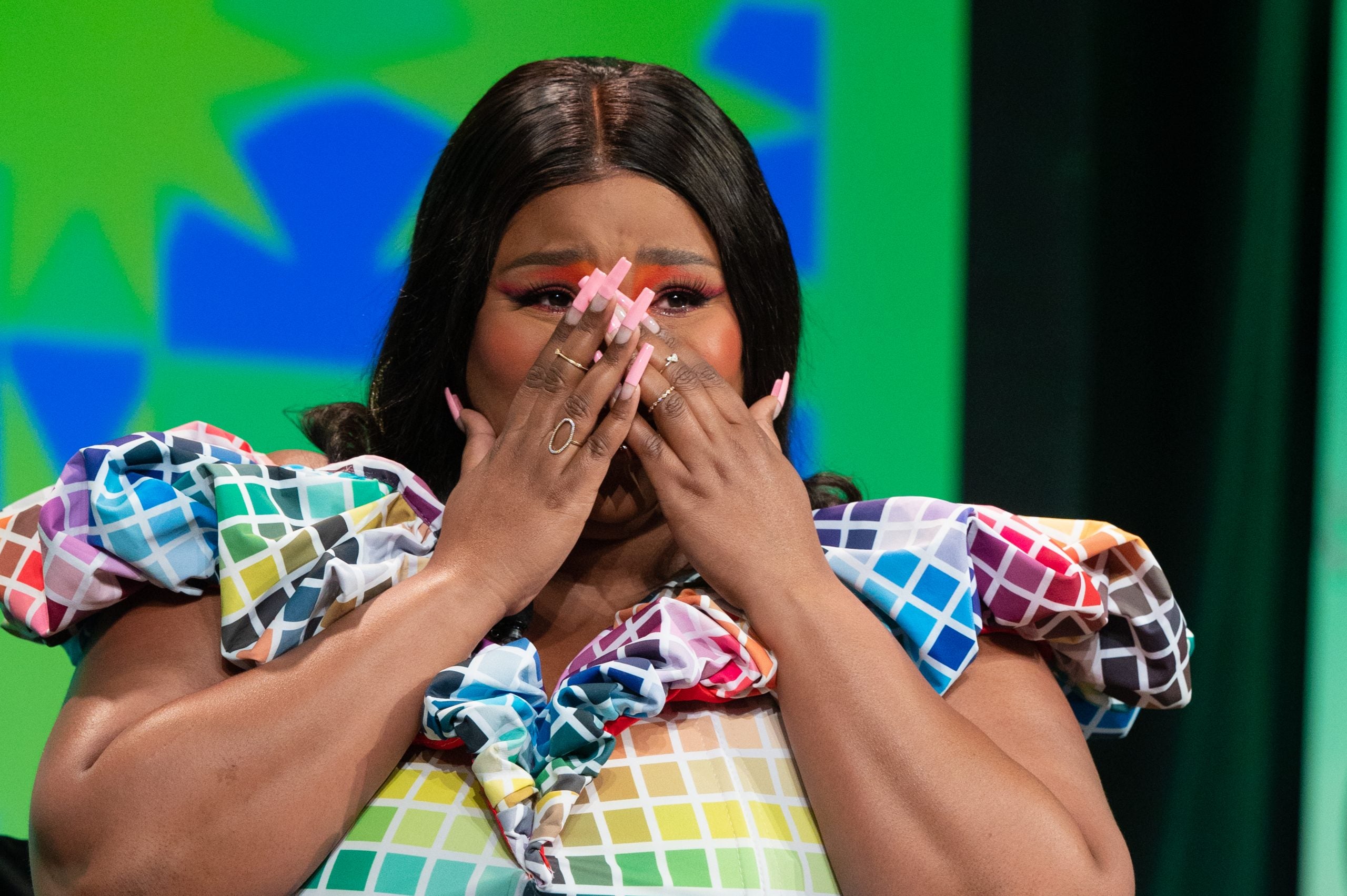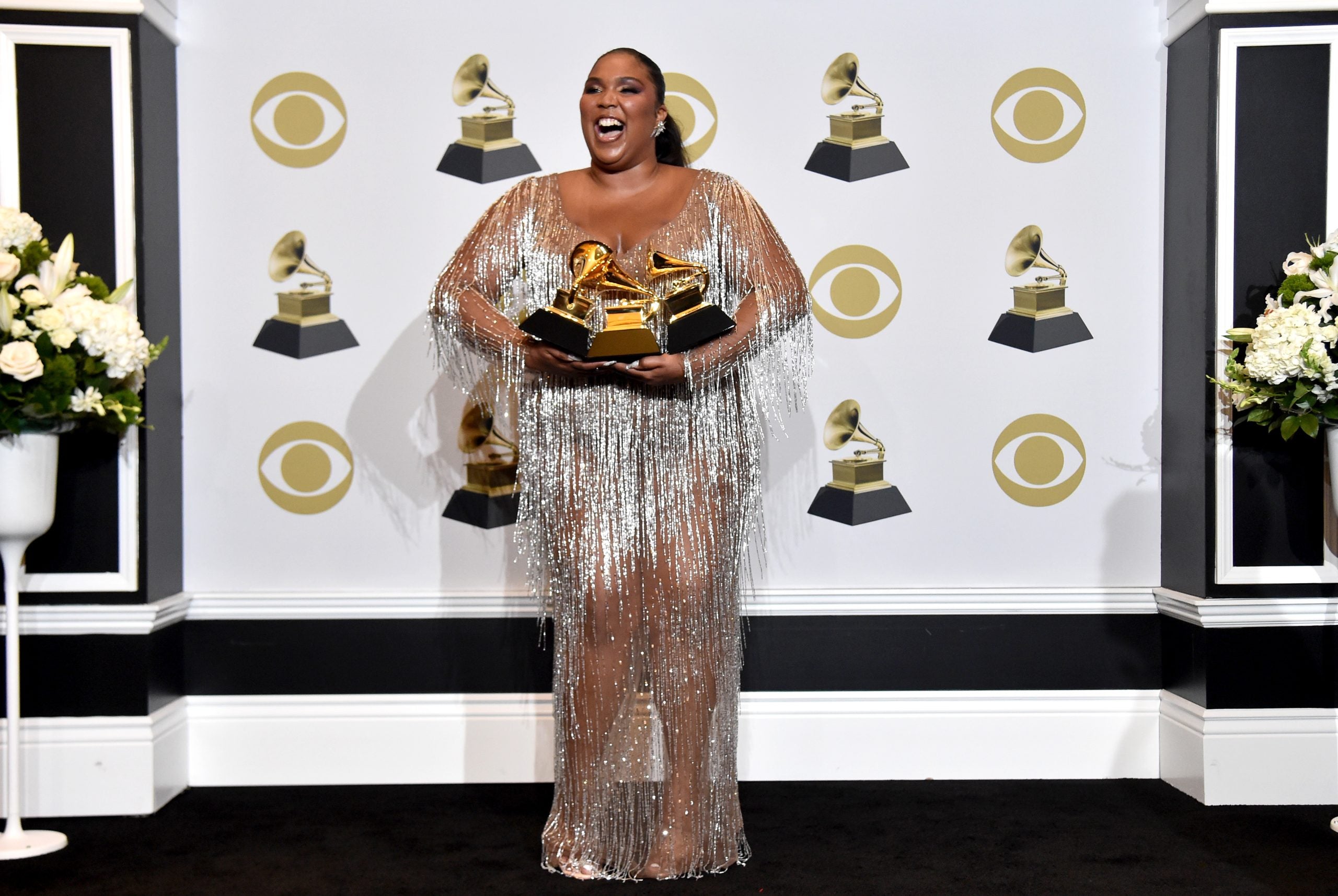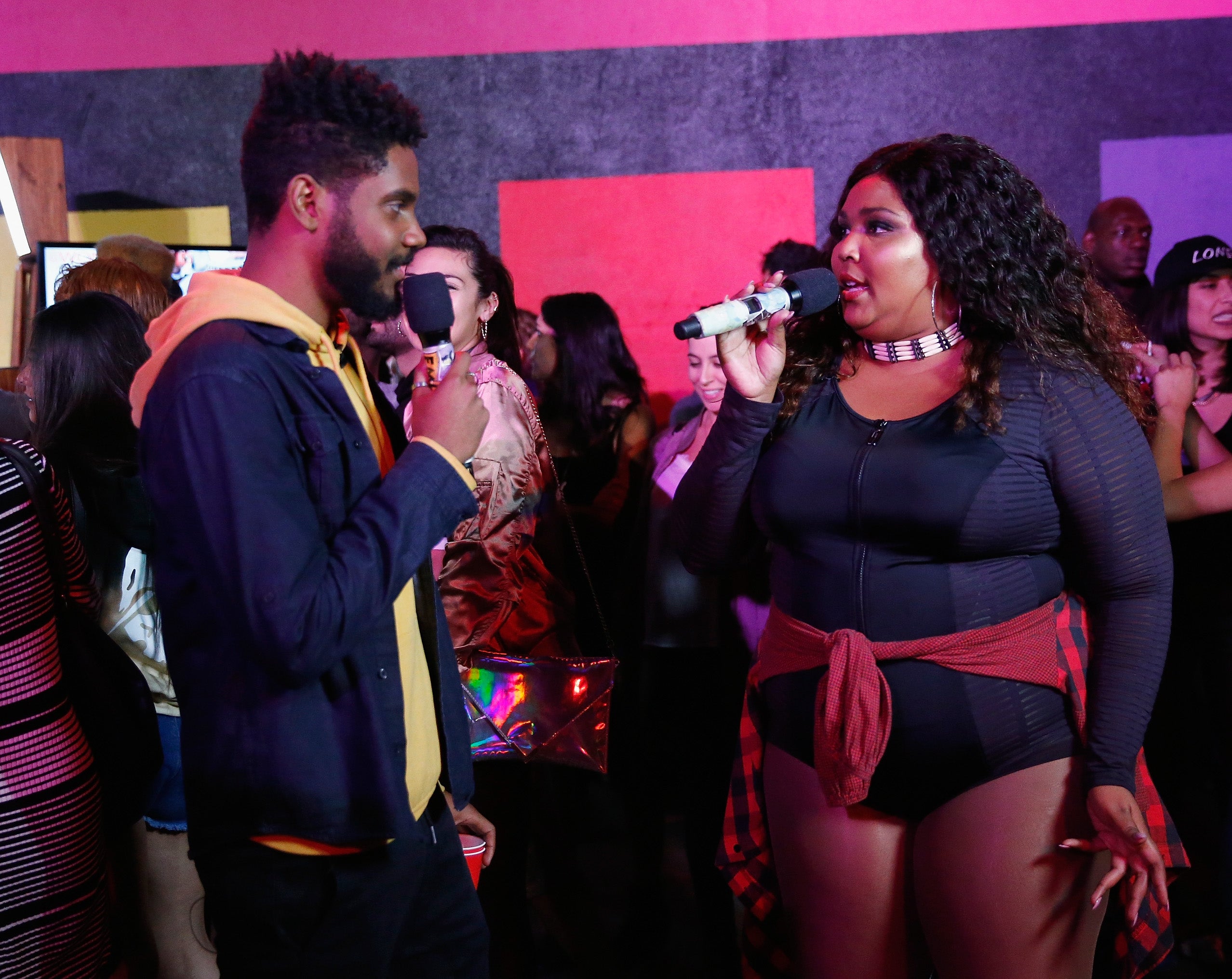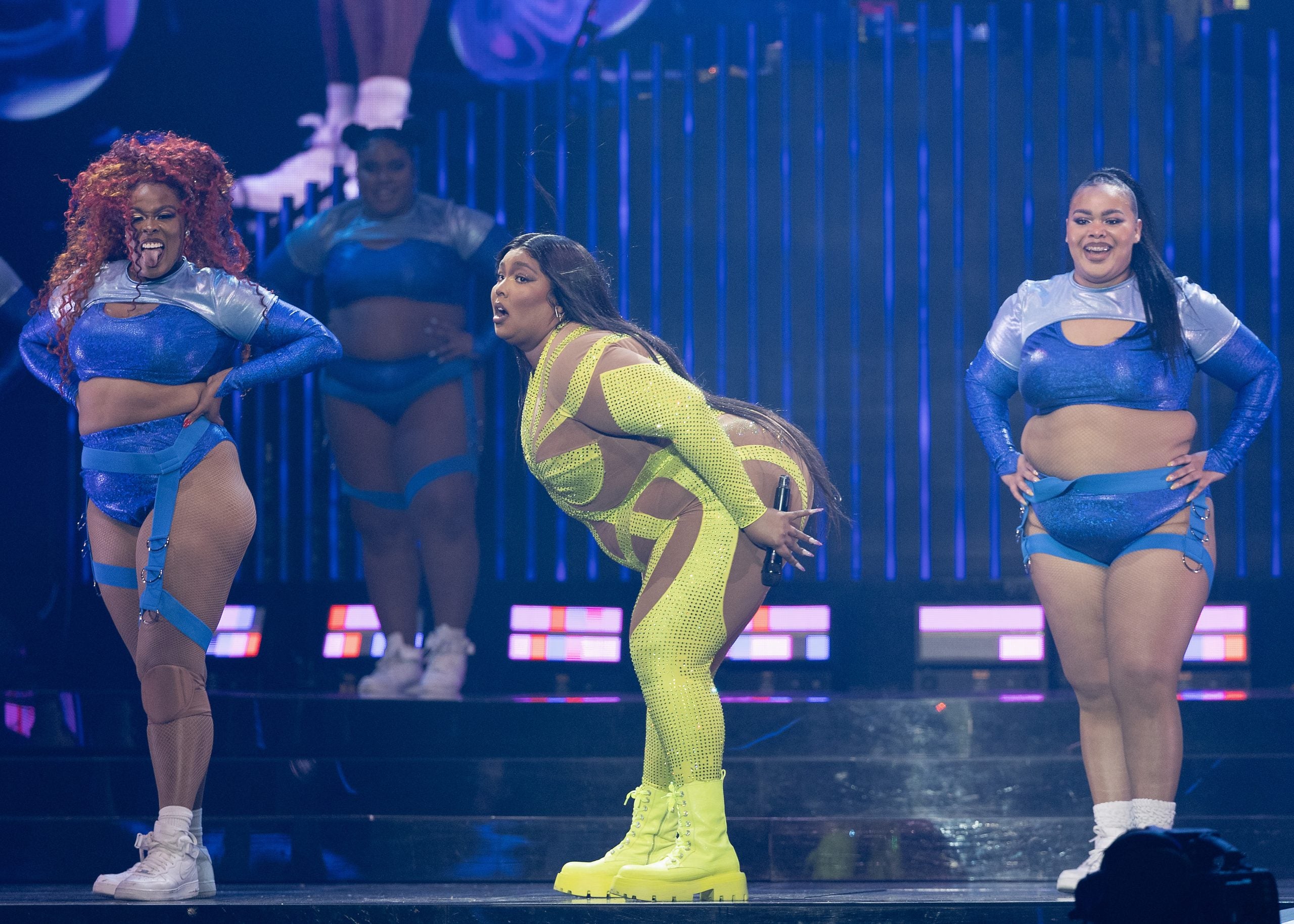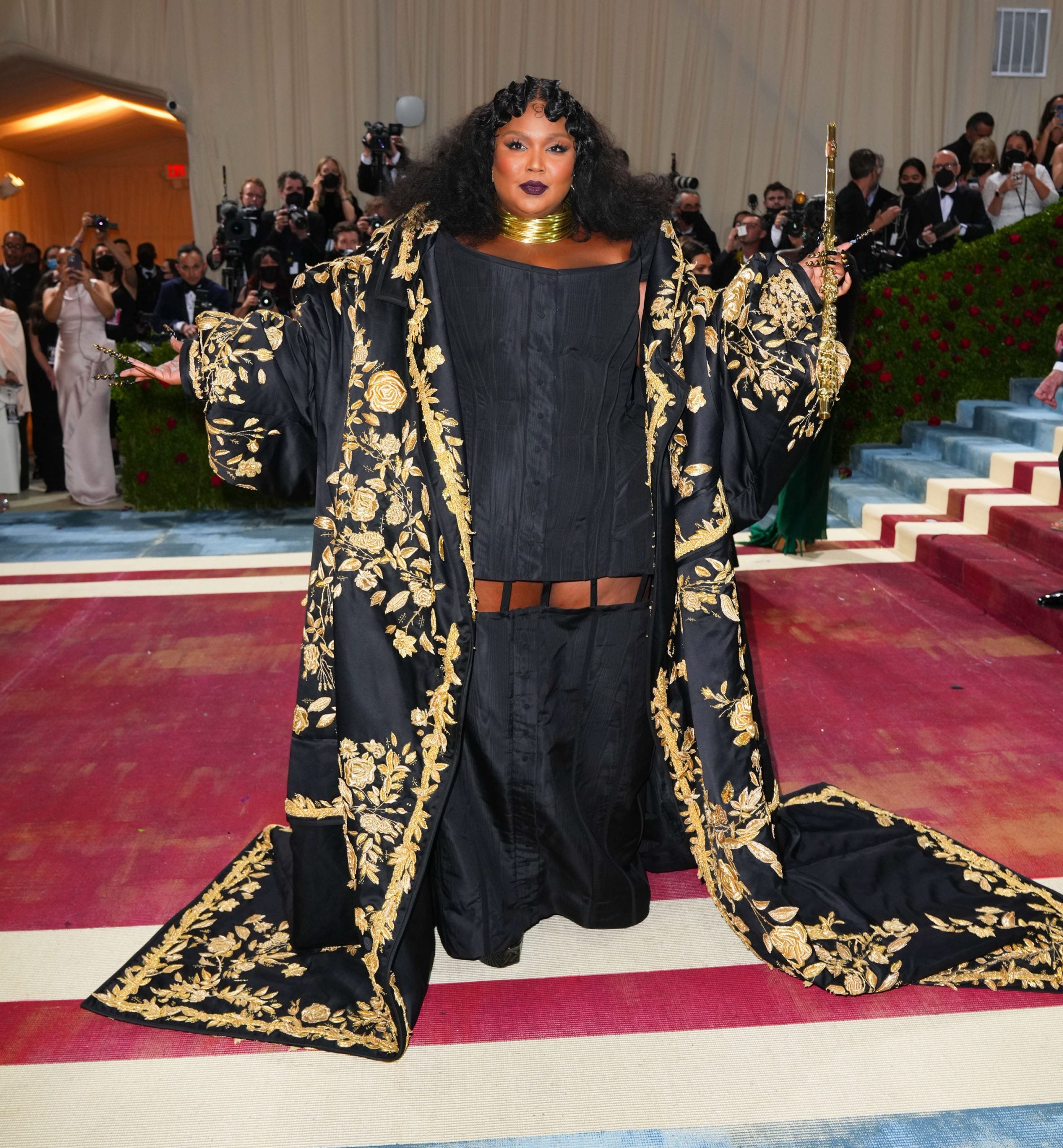Lizzo is limitless. You see, for those who were already believers, there was never a question about the Grammy and Emmy-winner’s gifts, talents and abilities. But, alas, life’s journey is often uncharted—full of hidden twists and turns. In the midst of the glitz and glamor, how often do we stop and ask “How did this superstar come to be?”
Love, Lizzo answers this question while chronicling the career path of our favorite singer/songwriter-rapper-flutist turned entrepreneur, Lizzo (née Melissa Viviane Jefferson), with a focus on the three-year period, following 2019. The Midwest native’s path to stardom was tumultuous—one that included moments of joy and fear as well as the self-doubt that haunts us all. But nevertheless, Lizzo’s light shines so brightly.
In Love, Lizzo, a documentary that made its premiere Nov. 24 on HBO Max, the multi-hyphenate demonstrates to the world, for the umpteenth time, that she is far more than the “fat Black girl that rapped and sang and played the flute.” It took practically a decade for Lizzo to receive mainstream recognition, but dammit, she’s here.
The 34-year-old has heart, and grit. Lizzo coupled her hard work with the power of manifestation (which she acknowledged using to advance her musical endeavors)—all of which was fortified by her spirituality– and the rest is history.
In Love, Lizzo, Melissa Jefferson, engrosses the audience while narrating her life story. We’re taken to Detroit, where Lizzo was born, and are introduced to her family. Then we’re brought to Houston where she came of age, went to college and ultimately lost her father. Minneapolis, where the artist was branded and Hollywood where a star was born. As an executive producer of the film, one would imagine that Lizzo has a bit of agency and tells the story on her own terms. While there were certainly moments in the doc where we wanted more from Lizzo (particularly, matters around her long-standing friendship-turned relationship, which we will discuss later in the article), you will, no doubt, leave the film feeling inspired.
Here are 10 things that we learned from Love, Lizzo.
01
Lizzo was raised in the church
In fact the musician’s great grandparents founded her family church, Mercy Faith Temple, in Detroit. Lizzo’s mom, Sharie Johnson-Jefferson, also sang in the church and as a result the Jefferson children (ie, Lizzo and her siblings) were raised around major gospel artists. Today, Lizzo admits that music has always had a “physical effect” on her because of her faith.
02
For Lizzo’s parents, it was love at first sight
Lizzo’s mother, Sharie Johnson-Jefferson met her late husband, Michael Jefferson, at church. Let Johnson-Jefferson tell it, they dated for about a month before getting married. The widow added, “You just know.” If only dating in the 2020s could be that simple.
03
Lizzo was introduced to the flute in middle school
Her then-band teacher, Mr. Browden, assigned the budding virtuoso to the wind instrument. Since, the flute has practically become synonymous with Lizzo. “The flute was this weird thing that just happened,” said the musician who in Sept. 2022 twerked while playing James Madison’s 200-year-old crystal flute. Lizzo also said that she faced biases as a flute player—frankly, people didn’t believe that a Black girl could have the skill or the technical prowess.
04
Lizzo is pro-Black AF
The multi-hyphenate attributes this ideology to her upbringing—specifically, her relationship with her father Michael Jefferson. As a child, Lizzo’s dad, who she describes as being “extremely pro-Black,” taught Lizzo and her siblings about racial injustice, as well as the life and death of Emmett Till.
Today, the artist considers herself a Black activist, one who stands on the shoulders of unsung trailblazers like Sister Rosetta Tharpe and Big Mama Thornton—who created the genre of rock and roll, as we know it.
05
Our queen of self-love at one point struggled with her own body image issues
In the documentary, Lizzo describes herself as growing-up “learning how to hate my body.” Lizzo recounts that in high school she took to extreme weight-loss efforts including the use of the prescription drug phentermine and wearing garbage bags (to reduce water weight), among other tactics.
06
The death of her father caused a dark turn in Lizzo’s life
Lizzo’s dad had his first stroke when she was 16-years-old. In 2009, Michael Jefferson would later pass away. “When he passed away, I lost the will to make music. I lost the will to live,” said the artist, who admitted that the years 2006-2010 were completely devastating. After highschool, Lizzo enrolled at the University of Houston on a flute scholarship, but dropped out. She would later lose her apartment and her job. The performer doesn’t go into much detail about this specific occurrence, but Lizzo once spent Thanksgiving in her 1998 Subaru. She cried and cried referring to this point as a “weird psychotic break”
07
“Truth Hurts” Went No. 1 years after its initial release
This might be no surprise to the real ones, but In 2019, “Truth Hurts,” arguably Lizzo’s biggest single to date, hit #1 on the Billboard charts. This accomplishment came two years after it was initially dropped.
08
While Lizzo became IG-official with her boo, Myke Wright, in 2022, the couple were first long-time friends
In 2016 Lizzo and Mkye Wright met on the set of MTV’s Wonderland, where they both worked as hosts. In Love, Lizzo, the audience experiences lots of tears and an onslaught of emotion surrounding the pair’s ups-and-downs, but the “2 Be Loved (Am I Ready)” singer doesn’t actually reveal much detail about her love interest. He remains a bit of a tease throughout. But what is clear is that after a period being on-and-off, the couple ultimately commits to being together.
09
Lizzo wants to reclaim twerking
If you’ve ever scrolled down Lizzo’s Instagram profile, then you will, no doubt, find an abundance of videos of the superstar twerking. Lizzo loves twerking and this is with intention. The performer grew up listening to New Orleans bounce and Southern rap. She wants Black people to take ownership of the art form, thus preventing Black erasure. In Sept. 2021, the “Tempo” singer even led a TED Talk about the Black history of twerking.
10
The Grammy-winner was criticized for making music for white people
From vitriol about her weight, to her propensity for twerking, the performer is no stranger to trolls on the internet. But, when voices on the Internet (specifically Black voices) attribute her success to being palatable and appealing to white audiences, the criticism hits differently. “I think there’s nothing that hurts me more than the rejection of my own people,” said the “Good As Hell” singer.
